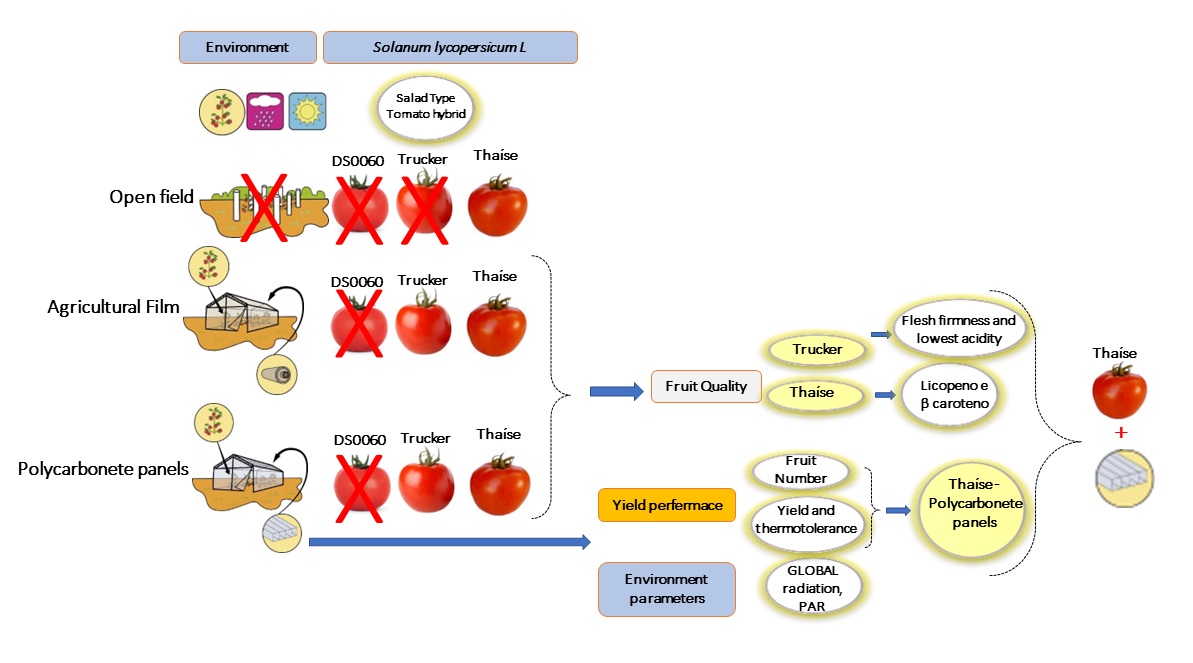Yield performance and nutritional quality of tomato hybrids in response to protected environments during the Amazonian summer

Published 2024-01-18
Keywords
- Carotenoids,
- fruit production,
- physicochemical properties,
- protected cultivation,
- Solanum lycopersicum L.
How to Cite
Copyright (c) 2023 Vicente Pataraico Junior, Flavio Fernandes Junior, Marcio Roggia Zanuzo, Rene Arnoux da Silva Campos, Franciely da Silva Ponce, Silvia de Carvalho Campos Botelho, Ivone Vieira da Silva, Darley Tiago Antunes, Maria Shirlyane Pereira do Nascimento, Santino Seabra Junior

This work is licensed under a Creative Commons Attribution 4.0 International License.
Abstract
This study evaluated the yield performance of the tomato hybrids 'DS0060', 'Thaise' and 'Trucker' in the open field and environments protected by agricultural film (F) and polycarbonate panels (P) during the Amazonian summer. In the protected environment, the crops produced significantly higher yields than in the open field. 'Thaise' has high thermotolerance and is adaptable to a wide temperature range, making it the best-performing hybrid in environment F. Highest yields were found for 'Thaise' in environment F or P (86.2 and 92.5 t ha-1) together with 'DS0060' and 'Trucker' in environment F (75.3 and 88.2 t ha-1), demonstrating the high yield potential in the interim growing season (January to April). In the open field, the fruit color was paler, fruit flesh firmer and ripening index lower. In environment F, the fruits contained highest levels of soluble solids, lycopene and β-carotene. 'Thaise' contained higher concentrations of these two compounds. Under environment P, the yield of the evaluated tomato hybrids increased considerably, indicating it as a promising possibility for tomato cultivation in tropical regions. 'Thaíse' stood out with high yield and good quality traits, when grown in an F or P environment. These results prove the viability of tomato production as interim crop in tropical regions, under high rainfall and heat, as well as the difference protected environments make for tomato cultivation, in particular the choice of the most suitable cover material for the crop, to ensure high yields coupled with desirable quality properties.




